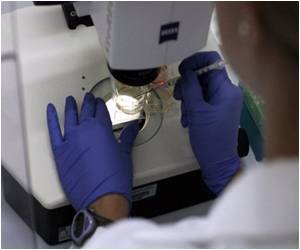A critical molecular switch that regulates autophagy or self eating has been identified by researchers.

As Yihua Wang and researchers in Xin Lu's group at the Ludwig Institute investigated the life cycle of fibroblast cells – the most common connective tissue cells in animals – they found that reduced levels of the ASPP2 protein increase RAS oncogene-induced autophagic activity. This in turn prevented cells from entering senescence. Without ASPP2, the cells continued to proliferate unchecked, thereby promoting tumor growth.
ASPP2 is known to play a role in suppressing tumor development. Mice that have a deficiency or malfunction in this protein have a predisposition to developing tumors. And low ASPP2 levels in patients are linked to poor prognoses in cancers, such as large B-cell lymphomas. Reduced ASPP2 expression has also been observed in highly metastatic breast tumors. But until now, researchers did not understand why.
"We found that in the presence of the common cancer-causing RAS oncogene, ASPP2 interacted with a protein complex that is responsible for deciding cell fate via autophagy," said Yihua Wang, PhD, Ludwig researcher in Oxford.
"What this means is that the cell's emergency stop button is disabled when ASPP2 expression is reduced or lost, allowing it to proliferate unchecked as with cancer," added Wang.
"The balance between the RAS oncogene and ASPP2 activity is crucial to determining whether or not tumor growth is promoted. Our next step will be to identify ways to alter ASPP2 activity at that critical switch point. This could be an effective way to treat cancers with reduced ASPP2 expression and mutated RAS, such as breast and colon cancers," concluded Wang.
Advertisement
Source-Eurekalert









